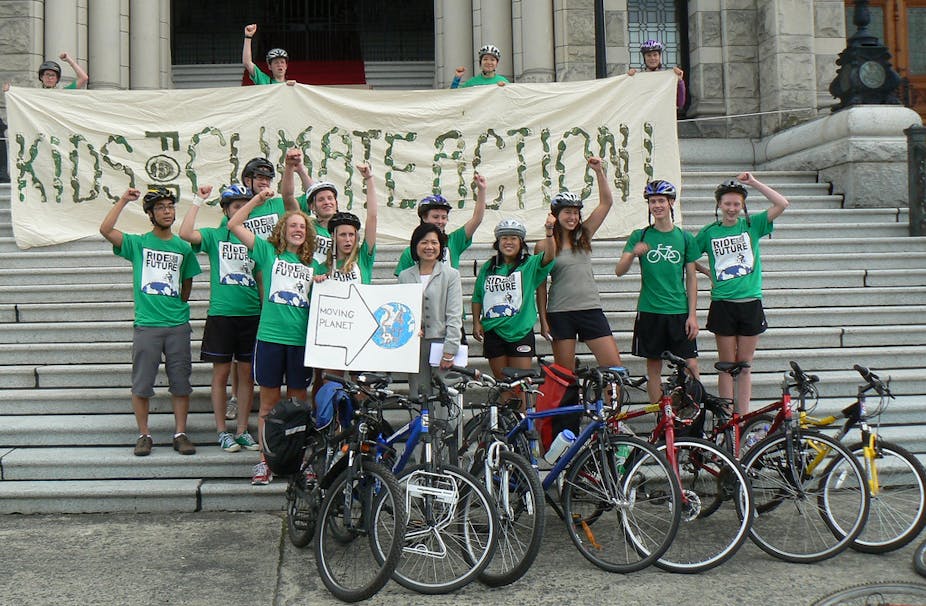International negotiations have failed to give us strong global commitments on climate change. Nations are falling short on their commitments for greenhouse gas emission reductions. Forget top-down solutions: it’s time to shine a light on what community action can achieve.
After 20 years of deliberation, the United Nations Framework Convention on Climate Change has brought us no closer to keeping global temperature rise to two degrees. Global trajectories of increasing carbon emissions have not been stymied nor have nations successfully reined in their emissions (even where strong climate policy exists, such as in the UK). Since the Copenhagen Climate Conference in 2009, there has been a significant decline in citizens’ interest and belief in global solutions.
But countries are still calling on their citizens to change their lives to reduce greenhouse gas emissions. Even back in 2007, the Howard government was hectoring Australian families to “Be climate clever”. Similar examples can be drawn from the USA, UK and European Union.
These calls for individual responsibility have largely failed to shift citizen action beyond what they can do within their personal resources – small, simple steps such as changing lightbulbs, buying energy efficient appliances and making minor changes in consumer and personal behaviours.
Al Gore, amongst others, has called for an uprising of civil action that would force political change on climate change in the same way as the Arab Spring has done for democracy. However in Western nations where government leadership on climate change is failing, citizens’ trust in politicians and governments continues to plummet and hopes for a global climate movement are not being realised.
My research with Australian Climate Action Groups suggests that such strategies will continue to fail until we overcome the social and institutional barriers stopping individuals from making more significant changes.
I identified three barriers:
- disempowerment
- lack of trust in politicians and political institutions
- inability to reflect on the root causes of climate change (in effect, our systems of production and consumption that have ignored nature’s limits).
Only a small proportion of the community chooses to take forms of collective political action but this seems to be changing. 100% Renewables, made up of about 100 local community-based groups, is one group that is strengthening every day. They join a growing and diverse array of community-based groups becoming more vocal and politically active around their community concerns related to coal exploration, mining and export and the need for renewable energy alternatives. How have they overcome the barriers above?
It is true to say that only certain people join community-based collectives. For the most part they are middle class, highly educated professionals, often freed up from immediate family responsibilities who have higher levels of risk-perception regarding climate change. While their initial motivation for action may be rooted in their understanding of climate change science, they are motivated to join with other, like minded people based on a sense of moral outrage and responsibility.
They understand for their action to be effective that it needs to be politically focused, collective and conducted in the public arena. The group facilitates their action – providing individual members with a supportive and safe environment for testing their convictions through riskier forms of activism. Members develop trust, learn and act together. In this way they forge a group identity which provides authority, legitimacy and authenticity to their collective action.
People who join together to take political action on climate change have got over their feelings of powerlessness and distrust. Involvement in the group bolsters individual members’ confidence around their voluntary actions. In coming together they develop and apply political and advocacy skills. In the process of group dialogue and deliberation, they practice democracy.
Members of these groups have breached the gap between their personal concern and moral obligation around climate change and their ability to take action on a political level.
People who come together voluntarily in local groups to take action on climate change become increasingly confident and skilled in their action. They now provide a real political alternative for climate change action. But it is larger advocacy groups, such as national environmental organisations, who tend to have the ear of governments and politicians. Instead, they need to harness these groups of knowledgeable, empowered and politically astute citizens.

